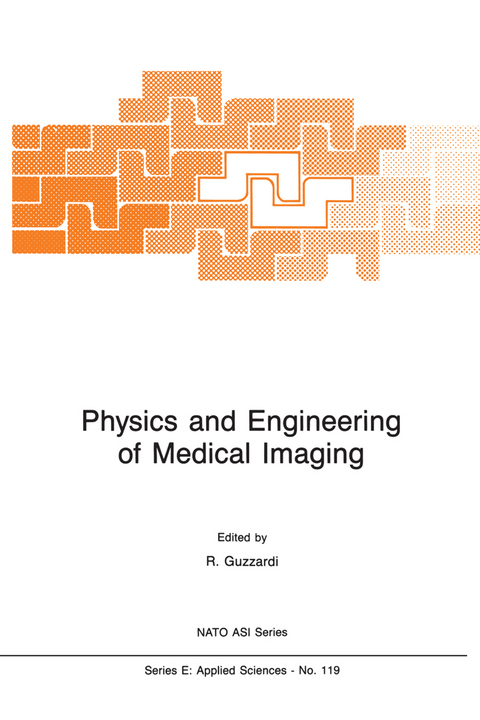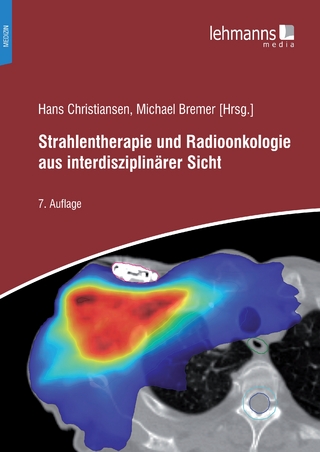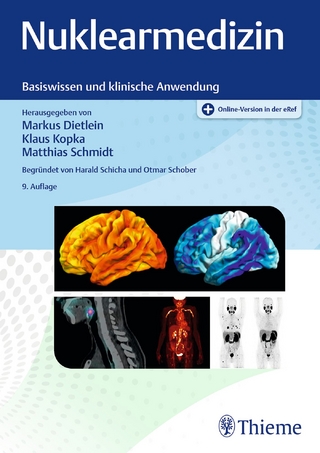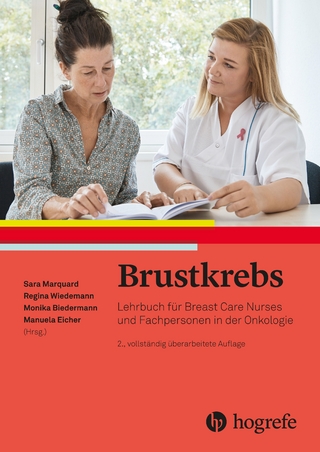
Physics and Engineering of Medical Imaging
Springer (Verlag)
978-94-010-8081-1 (ISBN)
Research: A Sound Investment in Effective Health Care.- I Basic Aspects of Medical Imaging.- A Short History of Modern Medical Imaging.- Image Analysis and the Method of Moments.- Strategies of Reconstruction Algorithms for Computerized Tomography.- Discussion Summary.- II Digital Radiology: Principles, Technology and Correlative Aspects with Nuclear Medicine.- Current Status of Digital Radiography.- Cardiovascular Imaging by Roentgen Television Computer Techniques.- Advanced Techniques for Digital Angiography of the Heart.- Cardiovascular Nuclear Medicine and Functional Imaging.- Digital Radiography and Nuclear Medicine: Correlative Aspects and Technological Cross-Fertilization.- Discussion Summary.- Digital Radiography Using the Individual Photon Counting Technique.- III X-Ray Computed Tomography.- Basic Technological Aspects and Optimization Problems in X-Ray Computed Tomography (C.T.).- Clinical Application of X-Ray CT: Results, Limitations and Future Needs.- Cine CT: a New Technology for Cardiac Computed Tomography.- Discussion Summary.- The Accurate 3-D Reconstruction of the Geometric Configuration of Vascular Trees from X-Ray Recordings.- Application of Computer-Tomography in Industrial Problems.- IV Ultrasound Imaging: Current Trends and Clinical Applications.- Basic Principles and Advanced Technological Aspects of Ultrasound Imaging.- Phased Array Acoustic Imaging Systems.- Ultrasounds in Cardiology: Recent Results, Limitations and Future Needs.- Advanced Applications of Ultrasound Imaging in Internal Medicine: Results, Limitations and Future Needs.- Future Directions in Ultrasound Imaging: a Critical Evaluation.- Discussion Summary.- High Resolution Medical Ultrasound: Applications in Rheumatology and Dermatology.- V General Problems I.- Digital Archiving of Medical Images.- VI General Problems II.- 3-D Display.- Quality Assurance in Medical Imaging.- Medical and Non-Medical Imaging: Cross-Fertilization.- Discussion Summary.- VII Other Imaging Modalities.- Current State, Limitations and New Perspectives in Functional Patterns Obtained by Infrared and Microwave Radiometry.- Biomagnetism: a Non-Invasive New Approach for Imaging of Bioelectrical Sources in the Human Body.- Possible Directions of Alternative Imaging Modalities: a Critical Overview.- Discussion Summary.- VIII Principles and Applications of Nuclear Magnetic Resonance Imaging.- Basic Principles of NMR Imaging.- Comparative Evaluation of NMR Imaging Techniques.- Clinical Nuclear Magnetic Resonance Imaging.- Discussion Summary.- IX Applicative Problems and Future Directions of NMR for in Vivo Studies.- State of the Art Magnetic Resonance Imaging.- Discussion Summary.- X Nuclear Medicine Agents and Instrumentation.- Radiopharmaceuticals for In Vivo Diagnosis - Current Topics and Future Prospects.- Single Photon Imaging: State of the Art, Limitations and Future Needs.- Digital Imaging in Nuclear Medicine.- Discussion Summary.- Transient Changes in Renal Uptake Rate of 99mTc DMSA as Possible Indicators of Changes of Renal Function During Stress.- Optimization of Right Ventricular Ejection Fraction Measurements from First Pass and Gated Blood Pool Scintigraphy.- XI State-of-the-Art and Future Trends in Single Photon Tomography.- Emission Tomography Using Rotating Cameras.- High Efficiency Multislice Approach for Single Photon Tomography of the Brain.- Design and Performance of the Cleon Two-Dimensional Focused-Ray Geometry Scanner for Single Photon Tomography.- Clinical Comparison between Multi-Ring Detector and Rotating Gamma Camera for Single Photon Tomography.- Discussion Summary.- Evaluation of the Computer Artifacts Generated in SPECT Reconstruction.- Limited Angle Sampling in SPECT.- X-Ray Tomography vs Compton Scattering in the Diagnosis of Pulmonary Diseases.- Seven Pinhole Tomography of the Heart.- SPECT Collimation for Medium-High Energy: Influence of Spatial Resolution and Image Contrast Within Transverse Plane.- XII Positron Emitters Radionuclides, Radiochemistry and Biotracers.- Cyclotrons and Positron Emitting Radiopharmaceuticals.- Radiopharmaceuticals for Positron Tomography.- Distributed Microprocessor Automation Network for Synthesizing Radiotracers used in Positron Emission Tomography.- Design Aspects of Installation for PET Radiochemistry.- An Automatic Line for the Production of Radiopharmaceuticals.- XIII Physiological Measurements by Positron Emission Tomography.- In Vivo Biochemistry, Physiology and Pharmacology Studies using Positron Emitting Radionuclides.- Evaluation of Performance and Accuracy in PET.- Advanced Cardiological Application of PET.- PET in Neurology: an Outline of Problems, Recent Acquisitions and Future Perspectives.- Simultaneous Determination of Cerebral Blood Flow and Partition Coefficient with a Freely Diffusable Tracer.- Discussion Summary.- Computerized Millimetric Mapping of Myocardial Blood Flow and Metabolism.- XIV State-of-the-Art and Future Trends in Pet Instrumentation.- Advanced Instrumentation for Positron Emission Tomography.- Signal to Noise Improvement in PET Using BGO.- The ECAT: A Recent Solution to High Efficiency, High Resolution Tomography.- Time-of-Flight Positron Emission Tomography (T.O.F. P.E.T.).- Potential Improvements in Instrumentation for PET.- Discussion Summary.- Comparison of Resolution and Crosstalk among Detectors Used in Positron Emission Tomography.- XV General Remarks.- Comparative Assessment of Imaging.- Perspective of Diffusion of Imaging Technologies.- List of Participants.- Colour Section.
| Reihe/Serie | NATO Science Series E ; 119 |
|---|---|
| Zusatzinfo | XIX, 996 p. |
| Verlagsort | Dordrecht |
| Sprache | englisch |
| Maße | 160 x 240 mm |
| Themenwelt | Medizin / Pharmazie ► Gesundheitswesen |
| Medizinische Fachgebiete ► Radiologie / Bildgebende Verfahren ► Nuklearmedizin | |
| Medizinische Fachgebiete ► Radiologie / Bildgebende Verfahren ► Radiologie | |
| ISBN-10 | 94-010-8081-X / 940108081X |
| ISBN-13 | 978-94-010-8081-1 / 9789401080811 |
| Zustand | Neuware |
| Haben Sie eine Frage zum Produkt? |
aus dem Bereich


